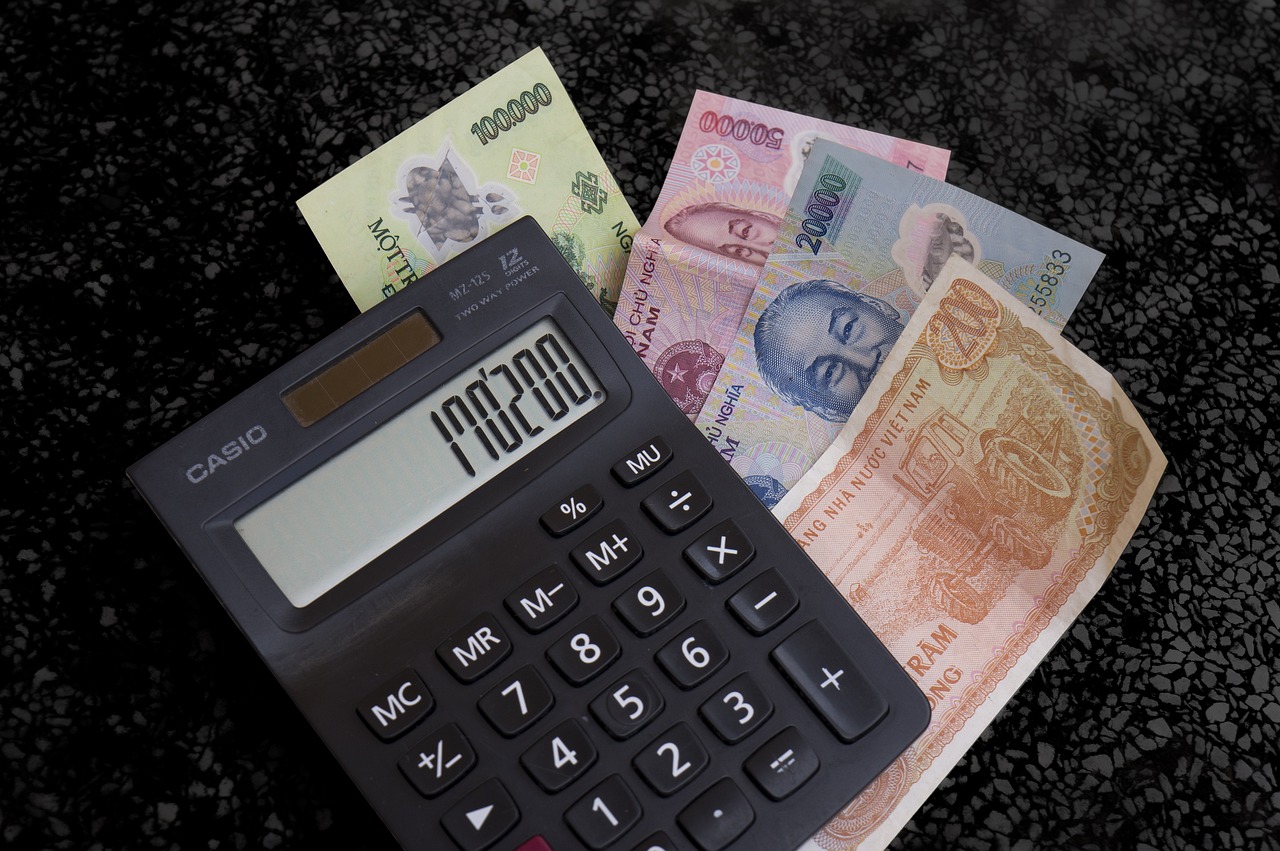Discover the Ins and Outs of Remitting Money to Germany: Your Guide to Fees, Documents, and More!
GPT_Global - 2024-07-30 07:30:09.0 529
What is the maximum amount of time allowed for remitting money to Germany?
When sending money to Germany, it is important to be aware of the maximum amount of time allowed for remitting the funds. This time frame can vary depending on the method of remittance used and the specific provider. Typically, the maximum amount of time allowed for remitting money to Germany is between 1 to 5 business days.
If you are using a traditional bank transfer, the maximum time frame will likely be closer to 5 business days. This is because the funds need to go through a series of checks and processing before they can be received by the recipient in Germany.
On the other hand, if you are using a remittance service, such as Western Union or MoneyGram, the maximum time frame may be shorter, often around 1 to 3 business days. These companies specialize in international money transfers and have streamlined processes in place to ensure quicker transfer times.
Additionally, some remittance providers offer expedited options for an extra fee, which can reduce the maximum amount of time allowed for remitting money to Germany even further. It is important to compare the fees and transfer times of different providers to find the best option for your needs.
In order to ensure timely delivery of your remittance, it is crucial to have all the necessary information and documentation ready before initiating the transfer. This includes the recipient's name, address, and bank account details. Any mistakes or missing information could delay the transfer process and extend the maximum time frame for remitting money to Germany.
In summary, the maximum amount of time allowed for remitting money to Germany can vary between 1 to 5 business days, depending on the method of remittance used and the specific provider. It is important to compare fees and services to find the most efficient and timely option for sending money to loved ones or conducting business in Germany.

Can I remit money to Germany using a credit card?
Remitting money to Germany has become easier than ever with the advent of credit cards. If you have loved ones or business partners living in Germany, you can now send them money with just a click of a button. Here's how!
Firstly, make sure that your credit card is enabled for international transactions. Most banks offer this service, but it's always best to check beforehand to avoid any inconvenience.
Next, log in to your remittance service provider's website or app, and select Germany as the destination country. Enter the amount of money you wish to send and select "credit card" as the payment method.
You will then be prompted to enter your credit card details, including the card number, expiration date, and CVV. This information is necessary for the transaction to go through securely.
Once you have entered all the required information, review the transaction details and click on "submit." You will receive a notification confirming the successful remittance of your money to Germany.
If you are using a remittance service that offers competitive exchange rates, you can save money on foreign transaction fees by using your credit card instead of directly transferring money from your bank account.
However, keep in mind that using a credit card for remittance may incur additional fees, such as cash advance fees or foreign transaction fees, depending on your credit card company's policy. It's essential to read the terms and conditions before initiating the transaction.
To ensure the safety of your money, always use reputable remittance service providers that use secure payment gateways and have transparent policies in place.
In conclusion, sending money to Germany using a credit card is a convenient and quick option. Just remember to have your card enabled for international transactions, use a trusted remittance service, and be aware of any additional fees that may apply. Happy remitting!
Is there a difference in fees for remitting money to Germany through different banks?
Remitting money to Germany can be a common task for individuals or businesses with international connections. However, when it comes to choosing the right bank for your remittance, it is important to consider the fees involved. Different banks may have varying fees for sending money to Germany, and it is essential to understand these differences before making a decision.
One of the main factors that contribute to the difference in fees is the exchange rate. Some banks may offer more competitive exchange rates compared to others, resulting in lower fees for remitting money to Germany. It is crucial to research and compare the exchange rates offered by different banks to ensure you are getting the best deal for your money transfer.
The speed of the transaction can also impact the fees for remitting money to Germany. Some banks offer same-day or next-day transfers, while others may take a few days to complete the transaction. Typically, faster transfers come with higher fees. It is essential to consider how urgently you need the money to reach Germany and weigh it against the fees charged by different banks.
An often overlooked factor is the fees involved in the receiving end of the remittance. While some banks may have lower fees for sending money to Germany, the recipient's bank may charge additional fees for receiving the funds. It is crucial to communicate with the recipient and their bank to understand if there will be any additional costs involved.
Lastly, it is essential to consider the overall service and convenience provided by the bank for remitting money to Germany. Some banks may have user-friendly platforms and offer excellent customer support, while others may lack in these areas. It is important to choose a bank that not only offers reasonable fees but also provides a smooth and hassle-free experience for your remittance needs.
In conclusion, there can be a difference in fees for remitting money to Germany through different banks. It is necessary to research and compare exchange rates, transaction speed, receiving fees, and overall service to choose the best option for your specific needs. Don't be afraid to ask questions and thoroughly understand the fees involved before making a decision. With proper research and consideration, you can find a bank that offers competitive fees and excellent service for your remittance business.
What documents do I need to provide when remitting money to Germany?
Remitting money to Germany involves sending funds from one country to another. This process requires certain documents to ensure the transaction is completed smoothly and efficiently. Here are the documents you need to provide when remitting money to Germany: 1. Identification Documents: As with any international transaction, you will need to provide a valid government-issued ID, such as a passport or driver's license. This is to verify your identity and ensure that the funds are being sent by the correct person. 2. Bank Account Information: You will also need to provide the recipient's bank account details, including the name, address, and the International Bank Account Number (IBAN). This information is crucial for the transfer to go through successfully. 3. Remittance Form: Some remittance service providers may require you to fill out a remittance form. This form includes information such as the amount to be transferred, the recipient's bank details, and the purpose of the remittance. 4. Proof of Income: Depending on the amount being remitted, some countries may require you to provide proof of your income. This is to ensure that the funds being transferred are legitimate and not from illegal sources. 5. Transaction Receipt: Once the transfer is completed, you will receive a receipt that shows the amount transferred, exchange rate, fees, and the date of the transaction. This receipt serves as proof of the transaction and should be kept for future reference. Remitting money to Germany may also require additional documents, depending on the specific requirements of the service provider or the country. It is essential to check with your chosen remittance service provider beforehand to ensure you have all the necessary documents for a smooth and successful transfer.Can I schedule recurring remittances to Germany?
If you frequently send money to Germany, it can be a hassle to manually schedule remittances every time. Luckily, many remittance businesses offer the option to set up recurring remittances to Germany. This means you can schedule your payments in advance, saving you time and effort. Recurring remittances to Germany are a convenient way to ensure your payments are made on time every time. Whether you need to send money back home to family or make regular payments for business, setting up recurring remittances can make your life easier. To schedule recurring remittances to Germany, all you need to do is set up an account with a trusted remittance business. From there, you can select the frequency of your payments (weekly, bi-weekly, monthly, etc.) and the amount you want to send. You can also choose the date you want the payment to be processed. Once you have set up the recurring remittance, you can rest assured that your payments will be made automatically without any additional effort on your part. This is especially helpful if you have a busy schedule or tend to forget to make payments on time. Recurring remittances to Germany not only save you time and effort but can also help you budget and plan your expenses more effectively. With the hassle-free process and convenient options, it's no wonder that many people opt for this service when sending money abroad. In conclusion, if you regularly send money to Germany, consider setting up recurring remittances with a trusted remittance business. It's easy, convenient, and can make your life a lot simpler. Say goodbye to manually scheduling payments and hello to stress-free remittances to Germany.
Are there any hidden charges when remitting money to Germany?
When it comes to remitting money to Germany, one of the major concerns for senders is the possibility of hidden charges. As with any financial transaction, it's important to be aware of all fees and charges involved in order to avoid any unpleasant surprises.
The good news is that most reputable remittance businesses have upfront and transparent pricing. This means that they will clearly state all fees and charges before you make your transaction. So, it's always wise to do your research and choose a remittance service that offers transparency in their pricing structure.
Some common charges that may be applied when sending money to Germany include transaction fees, conversion fees, and receiving fees. Transaction fees are charged by the remittance service provider for processing your transfer. Conversion fees are applied when converting your currency into euros, which is the currency used in Germany. Receiving fees are usually charged by the recipient's bank or payment provider for processing the transfer on their end.
It's also important to note that some remittance services may advertise low fees, but make up for it by offering poor exchange rates. This could end up costing you more in the long run. So, it's important to compare exchange rates and fees among different remittance providers to ensure you are getting a fair deal.
Additionally, it's worth considering the method of transfer. Using a bank transfer may incur higher fees compared to using a digital wallet or online money transfer service. It's best to choose a transfer method that is convenient for you and offers the lowest fees.
In conclusion, it's crucial to choose a trustworthy remittance service with transparent pricing when sending money to Germany. Avoid any surprises by understanding all fees and charges involved and comparing rates among different providers. With the right research and choice, you can save money and make hassle-free transfers to Germany.
Will the recipient be notified when the money is remitted to Germany?
Remittance businesses provide a convenient and secure way to send money internationally. Many people use these services to send funds to loved ones in other countries, and one popular destination for remittances is Germany. But if you are considering using a remittance service to send money to someone in Germany, you may be wondering if the recipient will be notified when the money is remitted.
The answer is yes, the recipient will be notified when the money is remitted to Germany. Remittance services typically have a system in place that automatically sends a notification to the recipient once the money has been received. This notification can come in the form of an email, text message, or even a phone call.
This notification not only lets the recipient know that the money has been remitted, but it also provides important details such as the amount of money sent and the date it was received. This allows the recipient to keep track of their finances and plan accordingly.
In addition to providing a notification to the recipient, most remittance services also offer tracking options so that both the sender and the recipient can track the status of the remittance. This adds an extra layer of security and peace of mind for both parties involved.
Overall, using a remittance service to send money to Germany is a fast, convenient, and secure option. The recipient will be notified when the money is remitted and will receive important information regarding the transaction. With advanced tracking options, both the sender and recipient can stay informed every step of the way. So if you need to send money to Germany, consider using a remittance service for a hassle-free experience.
How can I cancel a remittance to Germany if necessary?
Cancelling a remittance to Germany may become necessary for a variety of reasons, such as a change in financial circumstances or an error in the original transfer. While it may seem like a daunting task, the process can be easily navigated by following a few simple steps.
First, you will need to contact your remittance service provider and inform them of your desire to cancel the transfer. They will likely ask for details such as the recipient's name, the amount of the remittance, and the transaction number. Be sure to have all of this information readily available.
Next, you will need to provide a valid reason for the cancellation. This could include a change in plans, a mistake in the original transfer, or any other valid justification. It is important to be honest and forthcoming with your remittance service provider in order to expedite the cancellation process.
Once your provider has confirmed that the remittance can be cancelled, they will process the cancellation and return the funds to your account. This process can take anywhere from a few days to a week depending on the policies of your particular service provider.
If the remittance has already been received by the recipient, your service provider may not be able to cancel the transfer. In this case, you may need to directly contact the recipient and request that they return the funds to you. However, this option may not be available in all cases.
In order to avoid the need for cancellation, it is important to carefully review all details before initiating a remittance to Germany. This includes double-checking the recipient's information and ensuring that you have sufficient funds to complete the transfer.
In conclusion, cancelling a remittance to Germany may require some coordination and communication with your service provider, but it is possible to do so if necessary. By following these steps and being proactive in your approach to remittances, you can ensure a smooth and hassle-free experience when sending money overseas.
About Panda Remit
Panda Remit is committed to providing global users with more convenient, safe, reliable, and affordable online cross-border remittance services。
International remittance services from more than 30 countries/regions around the world are now available: including Japan, Hong Kong, Europe, the United States, Australia, and other markets, and are recognized and trusted by millions of users around the world.
Visit Panda Remit Official Website or Download PandaRemit App, to learn more about remittance info.



